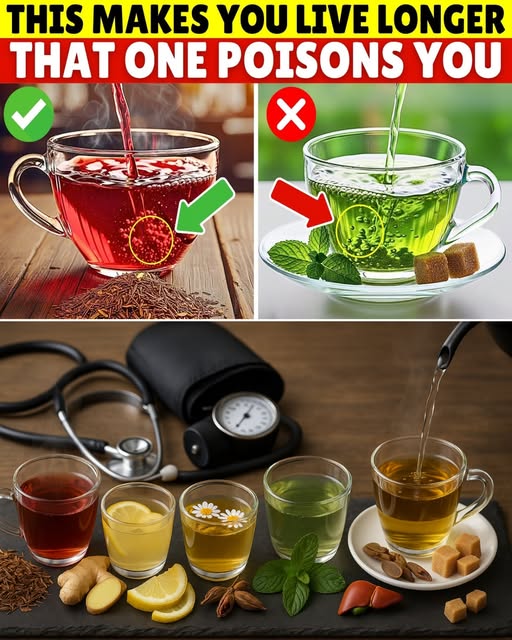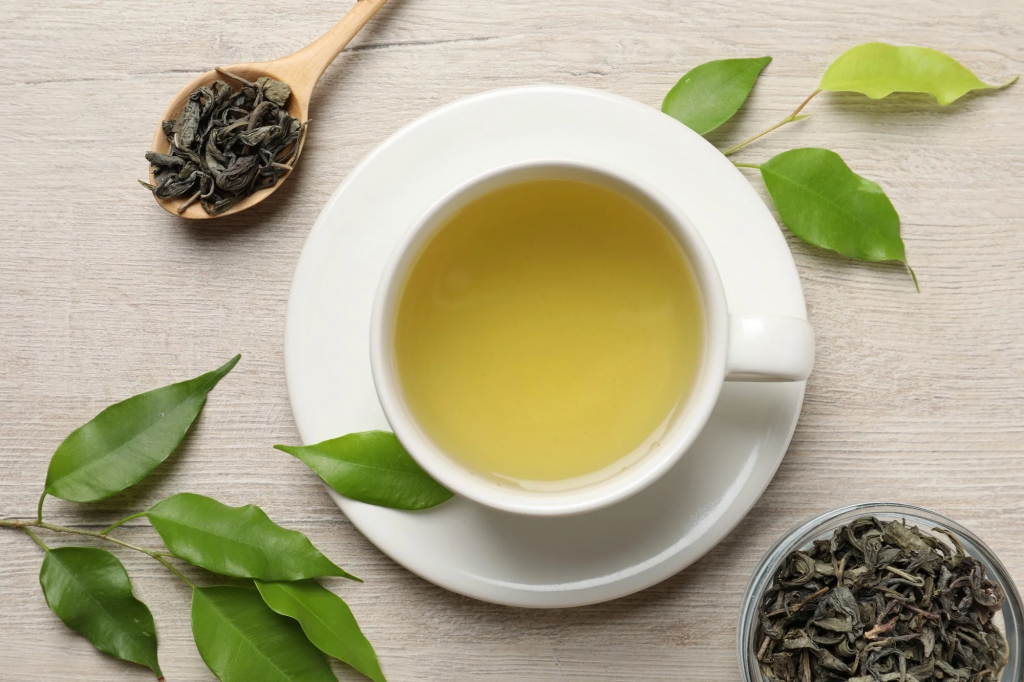Did you know that tea is the second most consumed beverage in the world, right after water? For people over 60, a simple daily cup of tea can either support health—or quietly cause harm. That’s because not all teas are created equal. Some varieties are filled with antioxidants, minerals, and compounds that protect your heart, joints, and memory. Others, however, can raise blood pressure, irritate the stomach, or even interfere with medications commonly prescribed in older age.
So, which teas should you avoid, and which ones should you embrace as part of your daily routine? In this article, we’ll uncover the four most dangerous teas for people over 60, alongside four safe and beneficial teas that can nourish your body and mind. By the end, you’ll know exactly which cup to reach for and which ones to push aside—ensuring that your tea habit enhances, rather than harms, your health.

Why Tea Choices Matter More After 60
As we age, the body changes in ways that make us more sensitive to certain foods and drinks. Kidney and liver function may slow, metabolism changes, and the risk of chronic diseases increases. Medications, often part of daily life after 60, can also interact with ingredients in tea. Choosing the right teas can improve digestion, circulation, and immunity, while the wrong ones may contribute to dehydration, heart issues, or even worsen existing conditions.
Tea should be both a pleasure and a wellness tool—so knowing what works for your body is essential.
4 Dangerous Teas You Should Avoid After 60
1. Very Strong Black Tea
While black tea has benefits, drinking it in very strong concentrations can raise blood pressure, increase heart palpitations, and even lead to dehydration due to its high caffeine content. For seniors on blood pressure medication, this can be risky.

Why Avoid It:
- Can raise blood pressure
- May interfere with iron absorption
- Can cause digestive discomfort when consumed on an empty stomach
2. Detox or “Slimming” Teas
Many detox teas contain laxatives and diuretics that may dehydrate the body and strain the kidneys. For older adults, this can worsen fatigue, electrolyte imbalance, and lead to nutrient deficiencies.
Why Avoid It:
- Strains kidney function
- Causes excessive fluid loss
- May interfere with medication absorption
3. Very Sweetened Iced Teas
Popular bottled iced teas often contain more sugar than a soda. Consuming them regularly increases the risk of diabetes, weight gain, and cardiovascular problems, especially in those already prone to such conditions.

Why Avoid It:
- High sugar increases diabetes risk
- Promotes weight gain and inflammation
- May damage teeth and bones
4. Herbal Teas with Strong Stimulants (e.g., Yerba Mate in Excess)
Certain herbal teas marketed for energy or alertness contain stimulants that can be too harsh for aging hearts. Yerba mate, guarana, and other caffeinated herbs may overstimulate the nervous system.
Why Avoid It:
- Can cause rapid heartbeat
- May increase anxiety or insomnia
- Risk of interacting with medications
4 Teas You Should Drink for Better Health After 60
1. Green Tea
Rich in antioxidants like catechins, green tea supports heart health, brain function, and may even reduce the risk of certain cancers. It has moderate caffeine but is gentler than black tea.

Benefits:
- Improves circulation and heart health
- Supports memory and cognitive function
- Helps regulate cholesterol levels
2. Chamomile Tea
Chamomile is famous for its calming effects. It soothes digestion, eases anxiety, and promotes restful sleep—something many older adults struggle with.
Benefits:
- Promotes better sleep
- Reduces anxiety and stress
- Supports digestion and reduces bloating
3. Ginger Tea
Ginger tea is warming and anti-inflammatory, making it perfect for joint pain and circulation problems. It also supports digestion and may help prevent nausea.

Benefits:
- Reduces inflammation in joints
- Supports circulation
- Aids digestion and relieves nausea
4. Hibiscus Tea
Hibiscus is rich in vitamin C and anthocyanins, which help lower blood pressure naturally and support kidney health. It’s a tart, refreshing option that doubles as a heart-friendly beverage.
Benefits:
- Naturally lowers blood pressure
- Boosts immunity with antioxidants
- Supports kidney and liver health
Quick Comparison of Teas
| Tea Type | Safe or Risky? | Key Effects |
|---|---|---|
| Strong Black Tea | Risky | Raises blood pressure, irritates stomach |
| Detox/Slimming Tea | Risky | Strains kidneys, causes dehydration |
| Sweetened Iced Tea | Risky | High sugar, diabetes risk |
| Stimulant Herbal Tea | Risky | Overstimulates heart and nerves |
| Green Tea | Safe | Antioxidant-rich, supports heart health |
| Chamomile Tea | Safe | Calming, aids sleep and digestion |
| Ginger Tea | Safe | Anti-inflammatory, boosts circulation |
| Hibiscus Tea | Safe | Lowers blood pressure, supports kidneys |
Practical Tips for Enjoying Tea Safely After 60
- Drink in Moderation: 1–2 cups of safe teas daily is plenty.
- Watch Caffeine: Opt for caffeine-free teas in the evening to protect sleep.
- Skip Added Sugar: Sweeten with honey or stevia if needed.
- Consult Your Doctor: Especially if you take blood thinners, heart medications, or diabetes drugs.
- Rotate Your Teas: Variety ensures you get a range of antioxidants and minerals.
Conclusion
Frequently Asked Questions
Can I still drink black tea after 60?
Yes, in moderation. Avoid very strong brews and drink with meals rather than on an empty stomach.
What’s the best tea for blood pressure?
Hibiscus tea has been shown to help lower blood pressure naturally.
Is green tea safe if I take medication?
In most cases, yes, but always check with your healthcare provider for interactions.
Can tea replace water?
Tea counts toward hydration but should not replace plain water entirely.
Choosing the right teas after 60 can make a remarkable difference in how you feel every day. By avoiding risky options and embracing safe, beneficial varieties, you can enjoy both the comfort of a warm cup and the peace of mind that you’re supporting your long-term health.
Disclaimer: This article is for informational purposes only and does not replace professional medical advice. Always consult a qualified healthcare provider before making changes to your health regimen.




